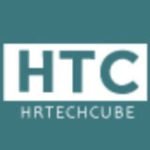As organizations prepare to head into a new year of business, McLean & Company, the trusted research and advisory partner for HR and leadership professionals worldwide, has revealed five key data-based employee and workplace trends in its HR Trends Report 2023. The timely report will assist HR leaders in their efforts to plan for and respond to the ever-evolving future of work, inform strategies and best practices that will support HR’s function within their organizations, and ultimately create a workplace in which everyone thrives in 2023 and beyond.
“HR’s effectiveness and role as a strategic partner to organizations is stronger than ever,” says William Howard, director of HR research and advisory services at McLean & Company and one of the principal research leads for the report. “HR practitioners are being relied on to direct decisions regarding critical business functions. Now more than ever, organizations need to prioritize employee development, wellbeing, and the employee experience, because the alternative appears to be lost productivity, poor performance, and high rates of turnover.”
The five key trends identified by McLean & Company are based on survey data collected in September 2022 from more than 1,000 HR professionals in a variety of roles, seniority levels, organizational sizes, geographic locations, unionization categories, industries, and work models.
The HR trends for 2023 are as follows:
- Re-examining HR’s role in 2023 – Though HR priorities have remained mostly static year over year, there’s a demand for HR to enhance its strategic skill set in 2023. HR will also need to monitor and manage increasing stress and burnout levels among both employees and HR team members while focusing on the top two priorities for organizations in the new year: recruiting and providing a great employee experience.
- Expanding the employee experience conversation – 2023 is the year for organizations to move from a focus on where work gets done and continue to improve how work gets done. Whether a team is remote, onsite, or hybrid is less important than curating the employee experience beyond the physical boundaries of work. For this shift, an employee value proposition (EVP) that effectively communicates organizational efforts will be more important than ever.
- Making space for diversity, equity & inclusion (DEI) – The importance of DEI work has been evident since day one. But after a surge in prioritization in 2020, organizations have started to lose their focus and urgency on the long-term work involved in DEI initiatives. Work must be done to reinforce the foundations of effective DEI activities to maintain the progress made over the past several years.
- Charting the course for HR digitization – Successful digitization can be the difference between transactional HR and strategic business partnerships. While many organizations have already reaped the benefits of HR digitization, many others are facing roadblocks on their digitization journeys. HR digitization in 2023 will require a customized approach to achieve strategic value for both HR departments and the organization.
- The struggle to close skill gaps – As organizations continue to operate in an increasingly volatile, uncertain, complex, and ambiguous (VUCA) environment, they must stop reacting to short-term skills shortages and labor market changes and instead adopt a long-term mindset regarding skills. The most pressing skill gap to address in 2023 is that of first-time leaders, who can lack the critical leadership and strategic competencies to be successful in their new roles. HR must prioritize their development and provide them with opportunities to develop key leadership skills required to effectively lead teams.
With recruiting and the employee experience at the top of the list of priorities heading into 2023, McLean & Company recommends that HR teams be increasingly tactical in their approach to ensuring long-term employee satisfaction. Focusing on the five key trends from the HR Trends Report 2023 will support the assessment, planning, and execution of a robust and comprehensive approach to accomplishing both HR and organizational goals in the new year.
“Employee experience goes beyond the physical boundaries of the workplace,” says Karen Mann, vice president, HR research, learning solutions & advisory services at McLean & Company. “It’s about finding the sweet spot that delivers on both employee and organizational needs. Employees are expecting organizations to provide a safe, engaging, diverse, and progressive work experience, with increased opportunities for personal and professional growth. This will require an employee value proposition (EVP) that is intentional and actioned by the organization. It will be up to organizational leaders, and their HR teams, to deliver on these expectations.”
For more such Updates Log on to www.hrtechcube.com.

